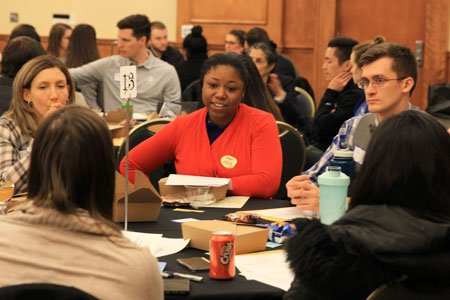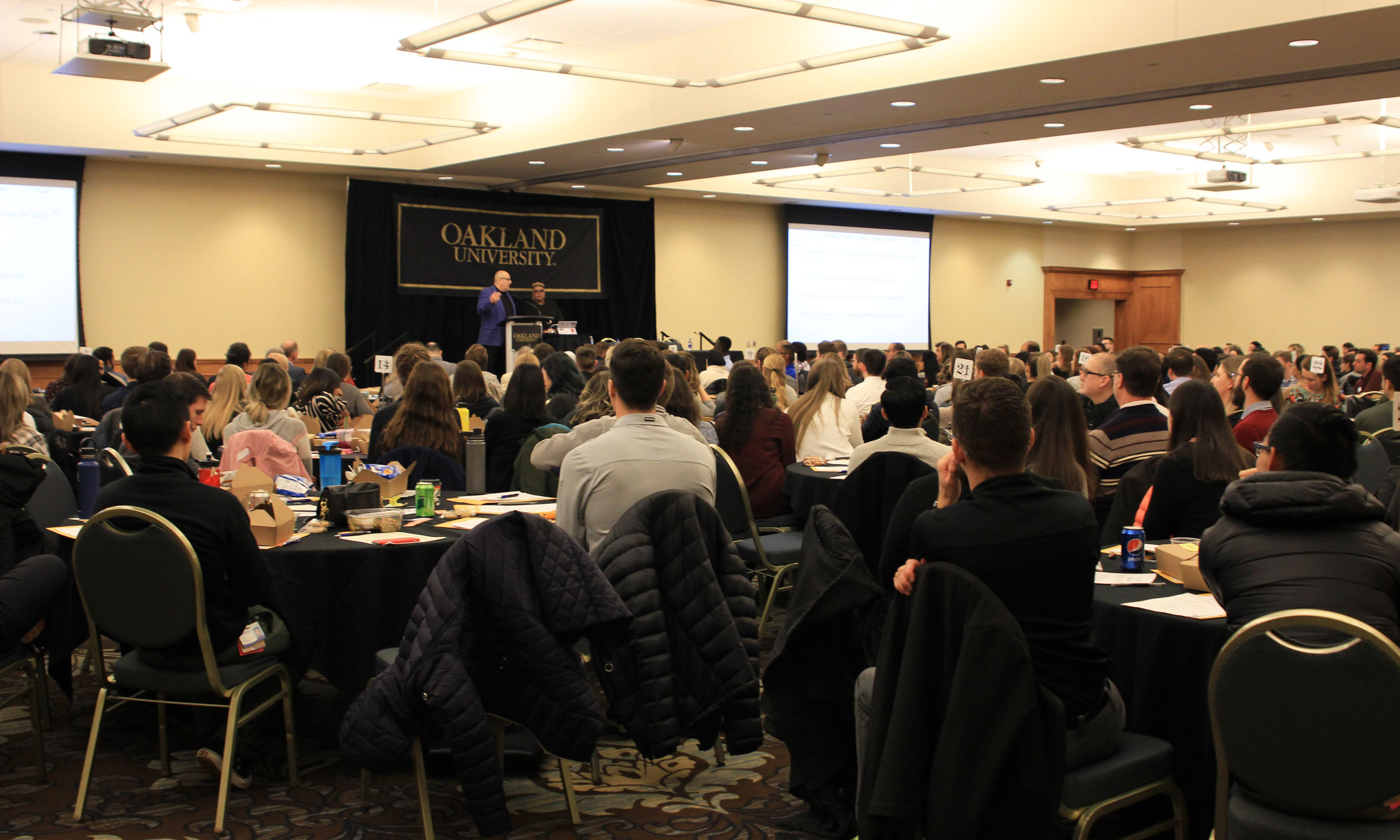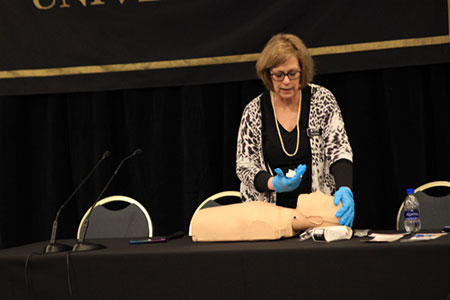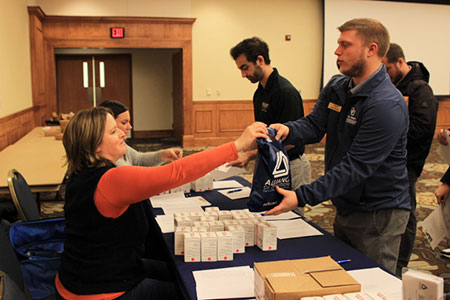Future health professionals gather to learn about opioid abuse prevention
More than 300 students and faculty recently took part in Oakland University’s fourth annual Interprofessional Workshop on Opioid Abuse.
“The way we talk to and about patients speaks volumes about how we will treat them . . . coming from a place of compassion and humanness is critical no matter what discipline you represent.”-Tanisha Moir, keynote speaker |
The event featured keynote speakers, an interprofessional healthcare panel, a case study discussion and a naloxone training – all intended to educate and empower future health professionals in the battle against opioid abuse. Workshop participants included students and faculty from the School of Health Sciences, School of Nursing, Oakland University William Beaumont School of Medicine, and for the first time, the College of Arts and Sciences.
“We’ve always had participants from medicine, nursing, physical therapy and public health attend this event, and this year we expanded our reach to include participants from the social work program in the College of Arts and Sciences,” said Deborah Doherty, PT, Ph.D., an associate professor with the Physical Therapy Program at Oakland. “We know that professionals in all of these fields interact with patients and families affected by opioid abuse. The more inclusive our educational outreach is, the more we can promote a truly interprofessional approach that addresses a wide range of care needs for patients and families.”
Keynote speakers
Keynote speakers John and Tanisha Moir emphasized the importance of diversity and inclusion in creating an environment in which each patient is treated with dignity and respect. The husband and wife are both licensed master social workers and certified addictions counselors. Tanisha also serves as a special lecturer and field liaison in Oakland’s social work program.
“The way we talk to and about patients speaks volumes about how we will treat them,” said Tanisha. “Instead of making assumptions based on stereotypes, we need to understand who people are and how to address them. Coming from a place of compassion and humanness is critical no matter what discipline you represent.”
The pair also shared their own experiences in recovery from alcohol and substance abuse. John recalled how his privileged background initially prevented health professionals from acknowledging his struggles with alcohol abuse.
“I didn’t present as what an alcoholic looked like,” he said. “I was employed in the mental health field, dressed appropriately, married, from the suburbs. For a long time, my privilege prevented health care providers from addressing my disorder.”
Tanisha, who is in long-term recovery from opioid use disorder, cited her experience with a dentist as an example of the holistic approach health professionals should take when caring for those in recovery.
“This dentist saw all of me,” she said. “He partnered with me to develop a treatment plan that did not involve the use of opioids. He asked about my recovery program and made sure I had someone to accompany me to appointments.”
John added, “People with substance use disorders show up everywhere. There is no setting where you are not going to need to be informed. There’s 22 million people in the U.S. who are in recovery, and we need to know that when we’re interacting with the medical community that they will work with us to maintain that.”
Case study and panel discussion

Caress Dean, MPH, Ph.D, (center) was one of the faculty facilitators during the case study discussion.
Following the keynote, students were presented with a case study involving a typical patient in a clinical setting and were tasked with coming up with an intervention plan. Each group was led by a faculty facilitator who asked questions and guided discussion.
Later, the case study was also discussed by a panel of health professionals who highlighted multi-disciplinary intervention options to limit the use of prescription opioids. The panel was moderated by Stephen Loftus, Ph.D., OUWB associate professor of medical education, and included four health professionals:
- Annas Aljassem, MD, MHSA (Hospice and Palliative Care, Physical Medicine and Rehabilitation specialties)
- Levi Hall, PharmD, Board Certified Pharmacotherapy Specialist
- Tanisha Moir, LMSW, Certified Advanced Alcohol and Drug Counselor
- Mary Neff, MSN, Certified Registered Nurse Anesthetist


 February 10, 2020
February 10, 2020



